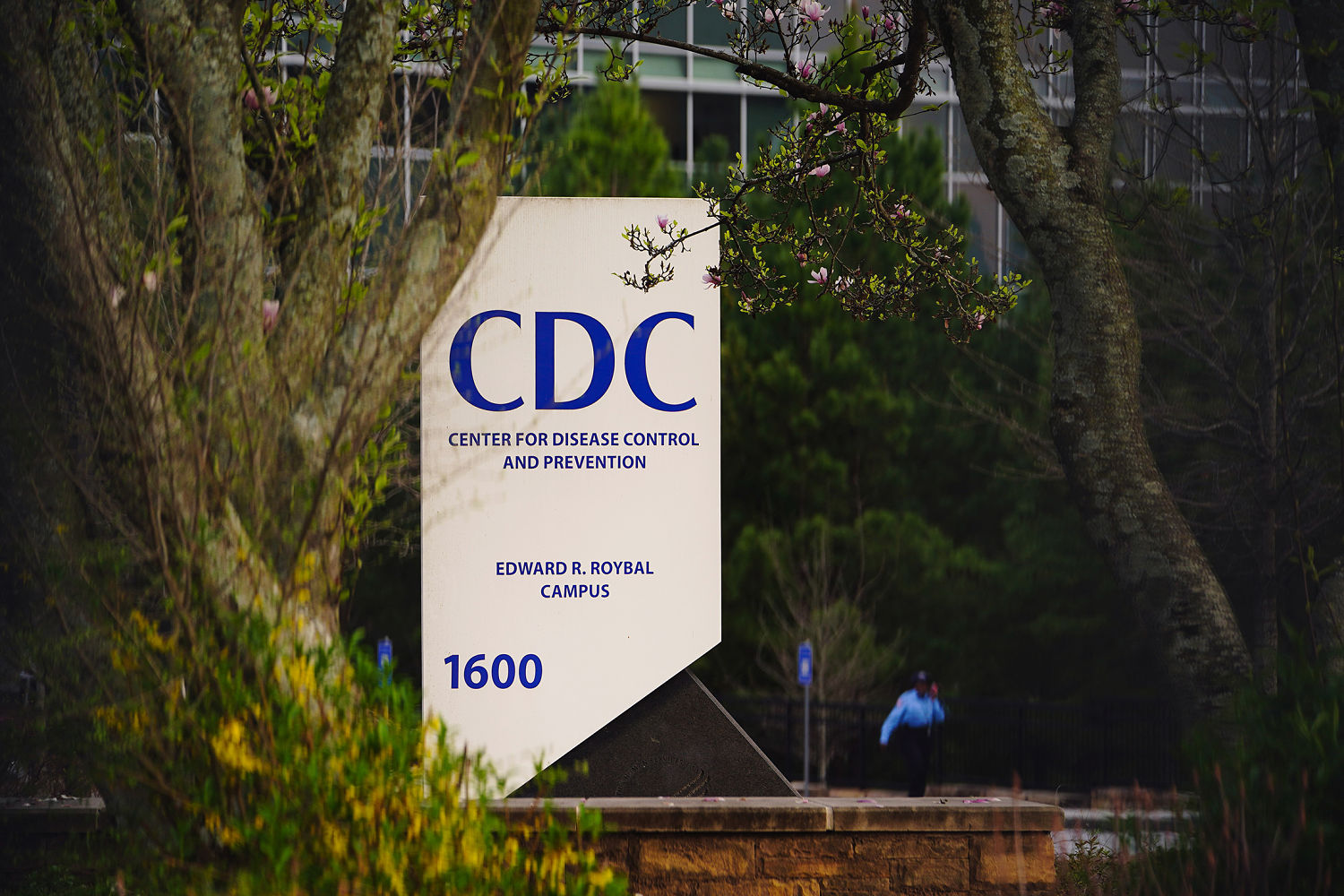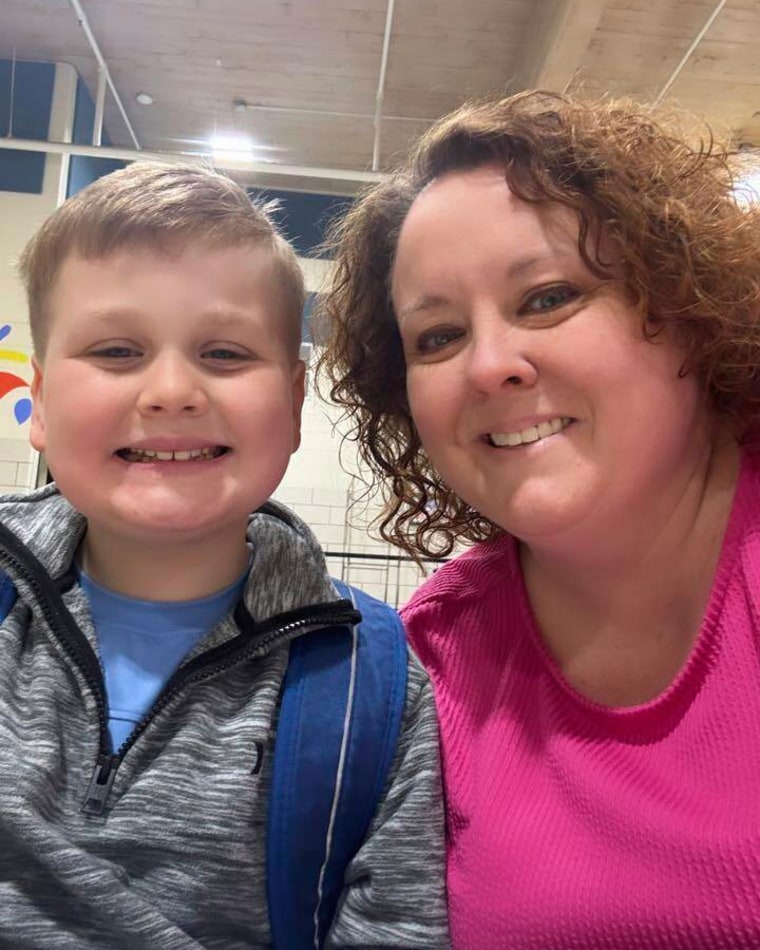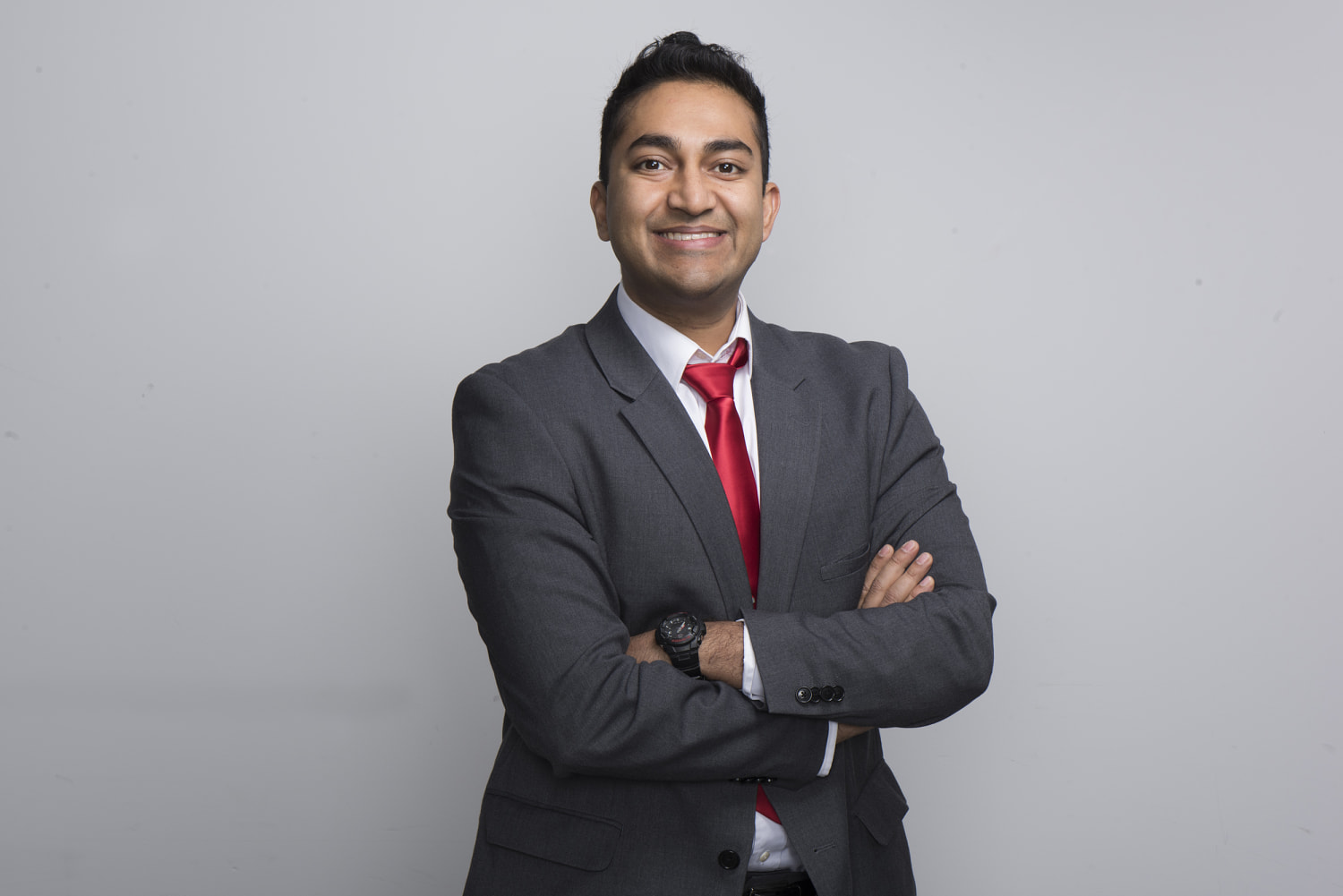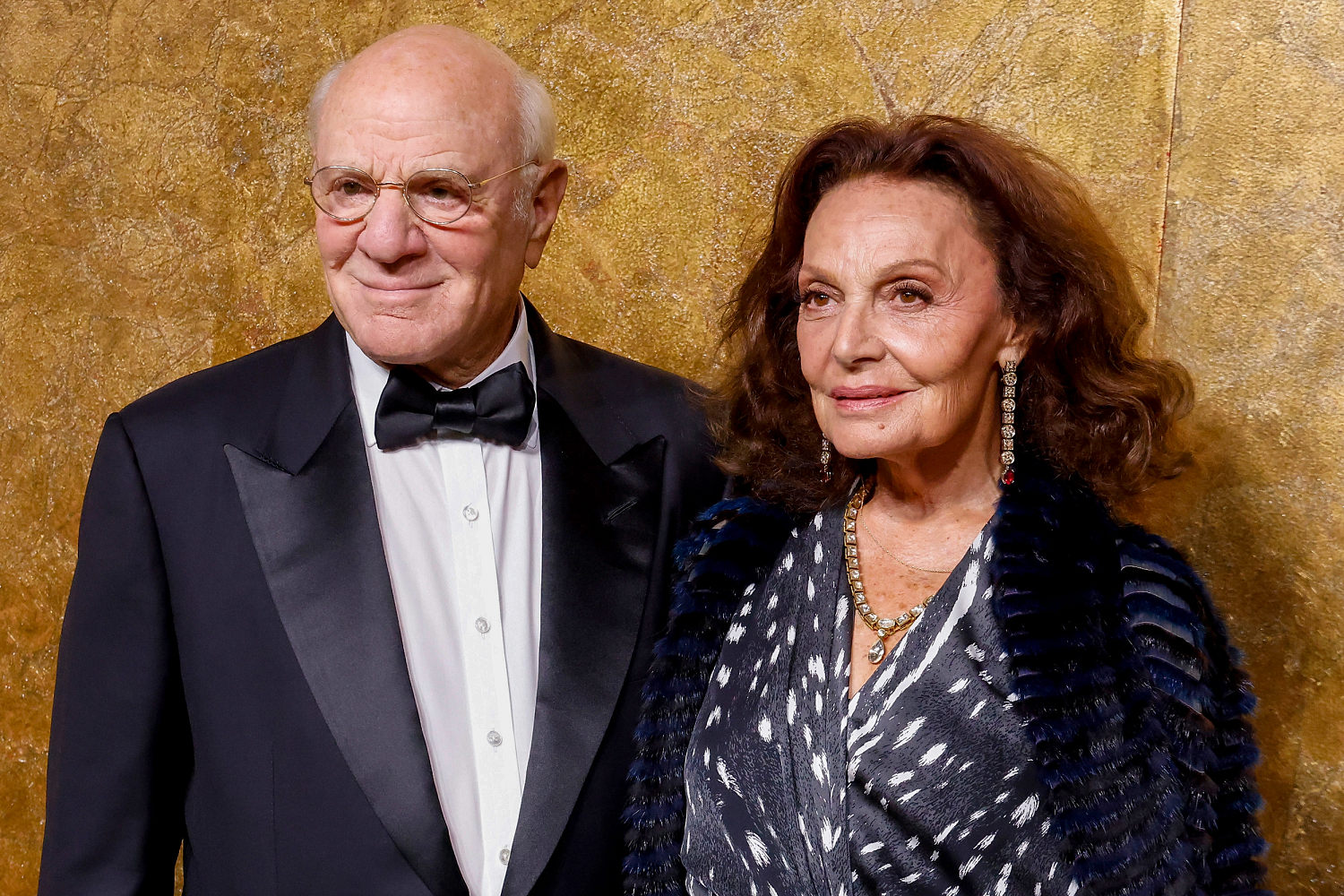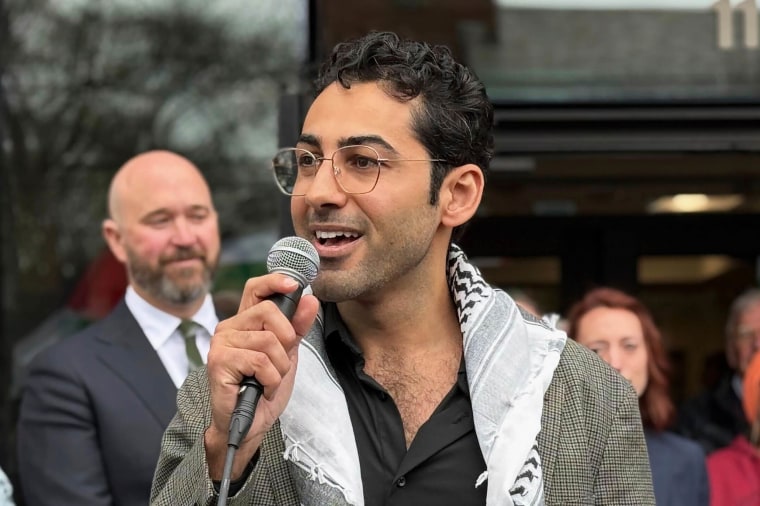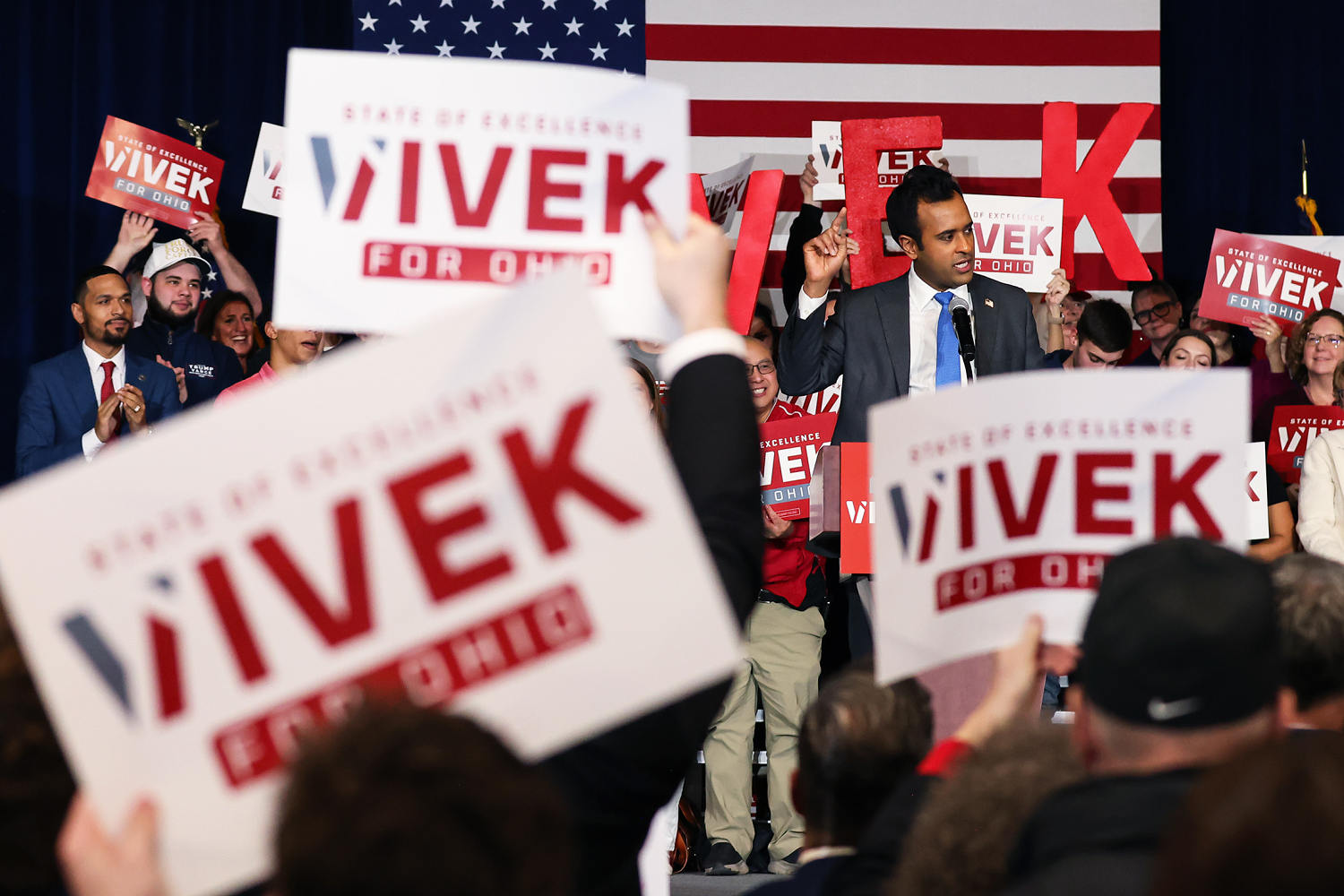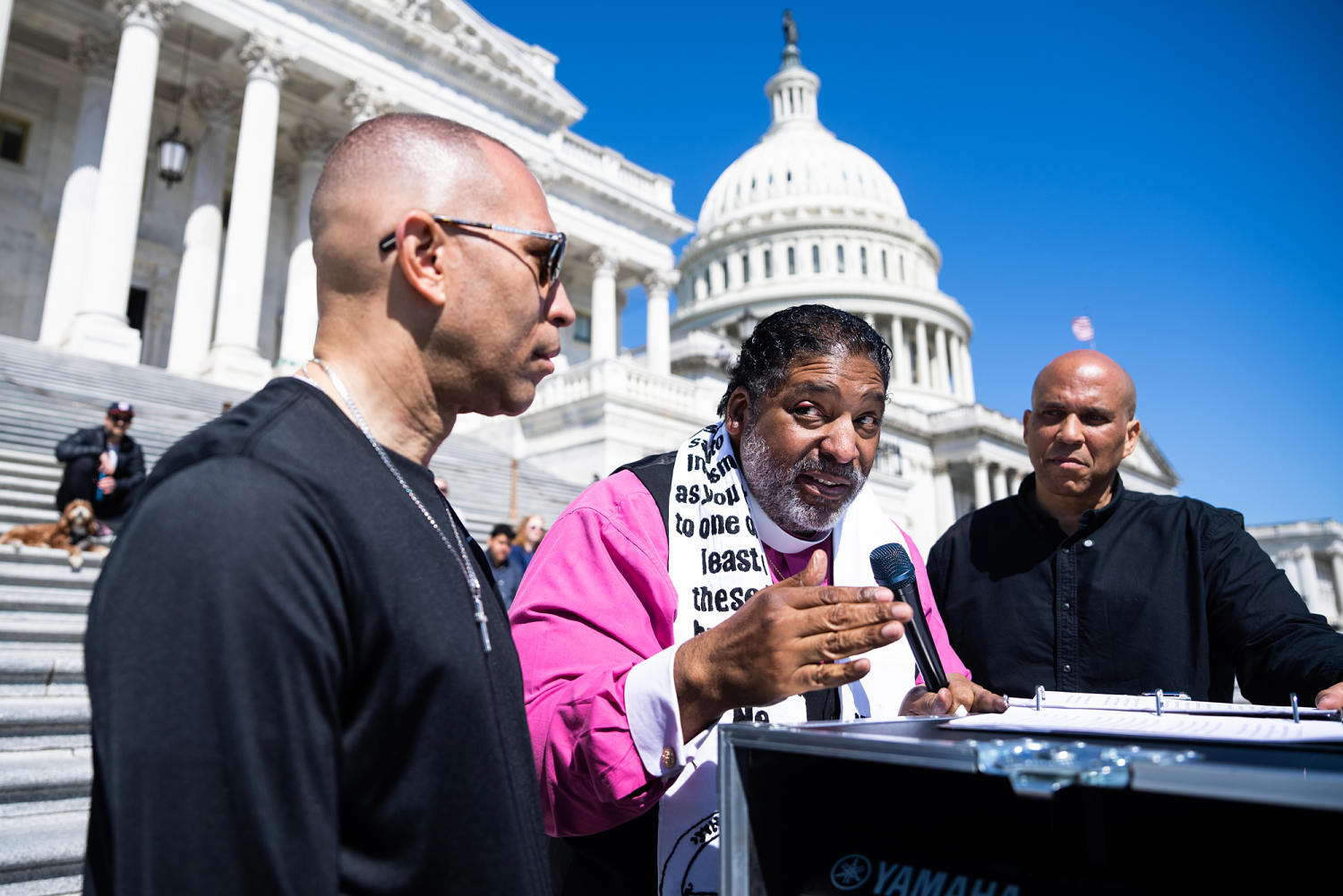CLEVELAND — President Donald Trump endorsed Vivek Ramaswamy on the night he kicked off his campaign to be Ohio’s next governor.
More than two months later, term-limited Gov. Mike DeWine is scrambling behind the scenes to keep the Ohio Republican Party from following Trump’s lead.
DeWine and his advisers are working to deny Ramaswamy an endorsement when the state party meets Friday, four people aware of the effort told NBC News, including one who heard directly from the governor.
The moves place DeWine sharply at odds with Trump and Vice President JD Vance, an Ohioan who has directed his political team to steer Ramaswamy’s campaign. The move also reinforces long-standing tensions in the state between the old guard, establishment GOP that DeWine is trying to preserve and Trump’s MAGA movement, which counts younger figures like Vance and Ramaswamy among its next generation.
DeWine and Trump were on opposite sides last year in a high-profile GOP Senate primary that Bernie Moreno — Trump’s candidate — ultimately won. And since DeWine chose Ohio State football legend Jim Tressel to serve as his lieutenant governor in January, there has been wide speculation that he prefers the former coach to succeed him. Aside from attending some party fundraisers, Tressel has sent no signals he intends to run, though he has not ruled it out.
“I think he would like to forestall an endorsement taking place, because I think he would like to see if he can convince Jim Tressel to run for governor,” one Republican leader in the state said of DeWine. This person, like others interviewed for this article, was granted anonymity to discuss private conversations and intraparty disputes involving a sitting president and governor.
DeWine did not directly respond this week to questions about his effort ahead of the state Republican Party meeting. In a statement issued through a spokesperson, he maintained that he is focused on state budget negotiations.
“As far as who I endorse in the Republican primary for Governor, it is much too early, as we do not even know who all will be in the race,” DeWine said in the Tuesday statement. “We are now 364 days away from the primary and 293 days away from the filing deadline. In politics, this is a lifetime!”
Votes from at least two-thirds of the state party’s 66-member central committee are required for a candidate to earn an endorsement, which would come with advertising and organizational support. The committee is scheduled to meet Friday to consider the matter.
Public and private polling has shown Ramaswamy — a biotech entrepreneur who ran for president in the 2024 election cycle before dropping out and endorsing Trump — with a wide primary lead over Tressel and state Attorney General Dave Yost. An outside group supporting Ramaswamy has already spent millions of dollars on TV ads emphasizing the Trump endorsement.
The supermajority vote is “a pretty high hurdle,” said a committee member who heard directly from DeWine. “I know Vivek has a lot of support. He’s working the phones. The governor is working them also.”
DeWine, according to this person and three other Republicans who have been briefed about the calls, is not advocating for a specific candidate but, rather, for delaying an endorsement, arguing that it’s too soon. The primary is scheduled for May 5, 2026.
A Ramaswamy ally with knowledge of DeWine’s calls said the governor and his administration “will be remembered for being wrong on every major Republican fight” and noted how DeWine had opposed past Trump-endorsed candidates.
“If Trump backs you, DeWine’s guaranteed to take the losing side,” this person added. “The establishment isn’t just out of touch — it’s out of time. And the state central committee will prove that again this Friday.”
Others expressed frustration that DeWine was meddling and teasing the prospect of other candidates who might emerge without offering an explicit alternative or coherent strategy.
“There’s not a unified opposition to the endorsement,” said the committee member who spoke with DeWine.
While DeWine’s involvement is viewed in part as an effort to keep the party’s powder dry in the event of a late entry by Tressel, it’s also viewed with a hint of irony: DeWine pushed the party to endorse him in a competitive primary for governor in 2018.
The situations aren’t entirely comparable. The state party’s 2018 endorsement of DeWine over then-Lt. Gov. Mary Taylor came about three months before the primary, after the filing deadline. The 2026 primary is less than a year away.
The early polling, though, suggests this race might not be as close. The Trump factor is more pronounced, too. He stayed out of the 2018 primary but has been with Ramaswamy since day one. And Trump’s endorsement of Vance in a 2022 Senate primary and of Moreno in the 2024 Senate primary helped both clinch the nominations. Those Trump endorsements came much later in the cycle, meaning there was less pressure on committee members to take an early stand.
Yost, in a recent letter to central committee members, urged a wait-and-see approach while also lobbying for their support if they decide to go forward with a vote Friday.
“The May 9 meeting is almost exactly a year before the primary election,” Yost wrote in the letter, which was first reported by Cleveland.com. “A great deal will happen in that year that could very well change your judgment. The world is a very fluid and unpredictable place, after all.”
Yost also likened a rushed endorsement to how Democrats quickly closed ranks around Vice President Kamala Harris last year after President Joe Biden dropped his re-election bid.
“No primary, no vote — just a coronation. That did not turn out well for the Democrats, and there is no reason to believe it will be better for the Grand Old Party,” Yost added.
DeWine did not respond to questions about the belief that he is trying to engineer a more favorable environment for a Tressel candidacy.
“When the time comes for an endorsement, I will base my decision on who I believe can best serve the people of Ohio and which Republican has the best chance of winning in the general election,” DeWine said in Tuesday’s statement. He noted, though, that he has already endorsed Sen. Jon Husted, his former lieutenant governor, in next year’s special election to fill the remainder of Vance’s Senate term. DeWine appointed Husted to fill the vacancy, which created the opening for Tressel.
Jim Dicke, a prominent GOP fundraiser in Ohio, said he sees little evidence that Tressel is interested in running for governor.
“Usually people are making phone calls, testing the waters and getting in their Chevrolet to drive around the state,” Dicke said.
“I’m sort of a ‘let’s listen to the voters’ person,” Dicke added. “The enthusiasm for Vivek has been so overwhelming that I think there’s a legitimate argument that the voters are speaking.”
Ramaswamy has kept a steady schedule of party functions — a pace that has impressed Tony Schroeder, a central committee member and chairman of the Putnam County GOP. Schroeder said Ramaswamy has earned his endorsement vote Friday.
“He’s got the enthusiastic backing of voters in a way that I’ve never seen this early in a primary cycle,” Schroeder said. “It’s absolutely astonishing. He’s filling halls in every part of this state.”



